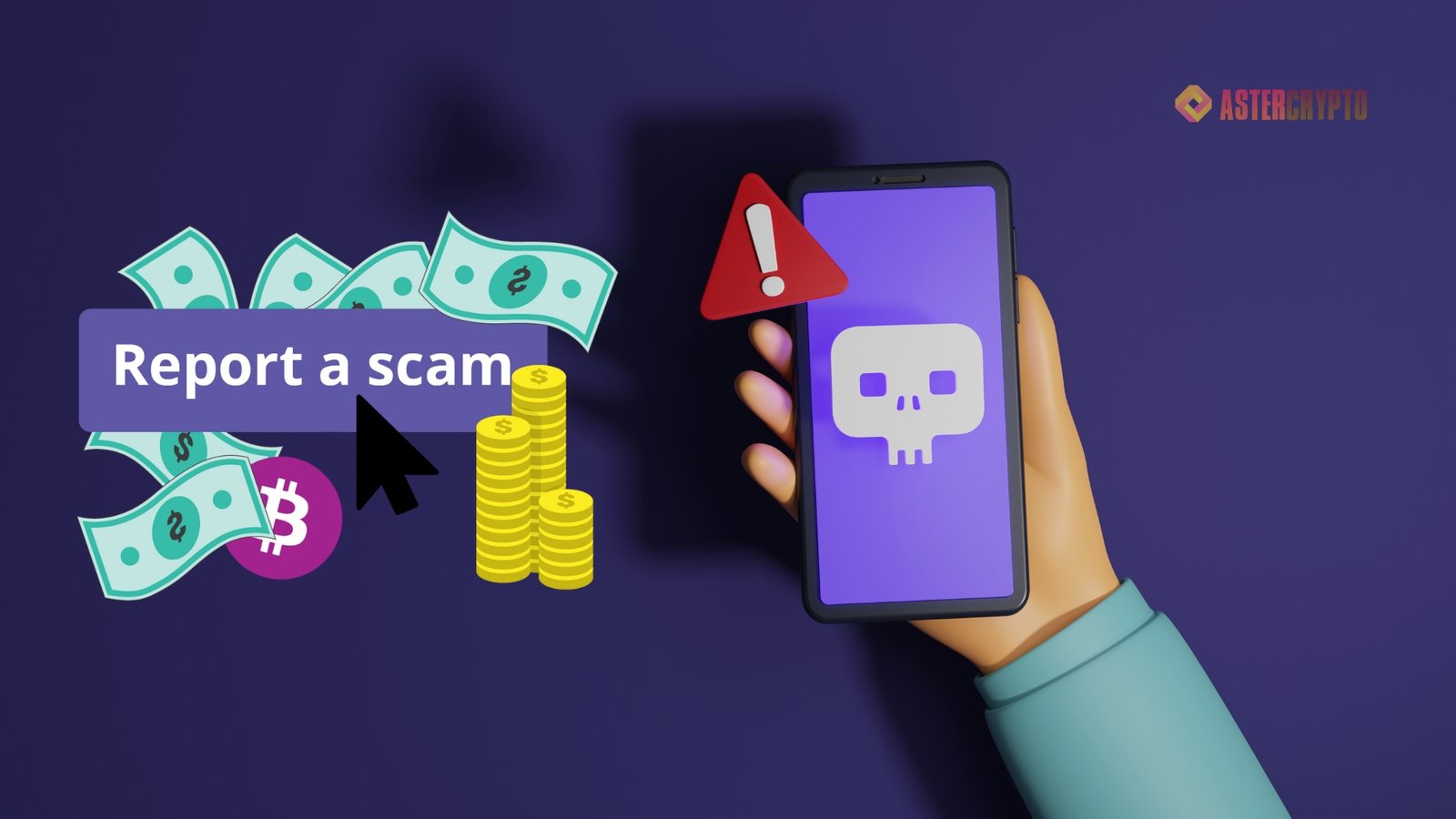In the rapidly evolving world of cryptocurrencies, the rise of crypto scams poses significant risks to investors and users alike. The Department of Financial Protection offers crucial insights to help individuals navigate these treacherous waters. By understanding the nature and mechanics of crypto scams, one can better protect themselves and their investments.
Overview of Crypto Scams
Crypto scams have become increasingly prevalent as more people seek to invest in crypto assets like Bitcoin and altcoins. A crypto scam typically involves fraudulent schemes to deceive individuals into losing money or personal information. Understanding these scams is vital to recognize the signs and protect oneself from falling victim.
A crypto scam refers to any fraudulent activity or scheme that seeks to exploit individuals interested in cryptocurrencies. These scams can take various forms, including phishing, Ponzi schemes, and giveaway scams. The involvement of blockchain technology and digital wallets makes such frauds appear legitimate, often leading victims to believe they are investing in a bona fide cryptocurrency project.
How Crypto Scams Work
Crypto scams lure potential victims with promises of high returns or exclusive opportunities. Scammers may create fake websites mimicking legitimate crypto exchanges or send phishing emails, encouraging individuals to share their private keys. Once they access the victim’s crypto wallet or funds, it becomes nearly impossible to recover the stolen assets.
Common Characteristics of Cryptocurrency Scams
Common characteristics of cryptocurrency scams often include unrealistic promises of guaranteed returns, urgency in investing, and a lack of transparency about the project. Scammers may use professional-looking white papers or testimonials to gain trust, making it crucial for investors to conduct thorough research before engaging with any cryptocurrency investment opportunity.
Types of Cryptocurrency Scams

Understanding the various cryptocurrency scams allows individuals to identify better and avoid potential threats. Each type operates differently, but all share the goal of defrauding unsuspecting users. Awareness of these scams is essential for anyone looking to invest in crypto or engage in crypto trading.
Phishing Scams
Phishing scams are among the most prevalent crypto scams, where scammers attempt to obtain sensitive information through deception. Victims may receive emails or messages that appear to come from legitimate crypto exchanges, prompting them to enter their login credentials or private keys. Once scammers have this information, they can access victims’ crypto accounts and steal their funds.
Giveaway Scams
Giveaway scams often entice users with the promise of free cryptocurrencies or tokens in exchange for small payments or personal information. Scammers create fake social media accounts or websites that claim to host giveaways, only to disappear once they receive payment in crypto. Such scams exploit the allure of free money, making it essential for individuals to scrutinize any giveaway claims closely.
Ponzi Schemes in the Crypto World
Ponzi schemes in the crypto world use new investors’ funds to pay returns to earlier investors, creating the illusion of a profitable investment. Scammers often promote these schemes through initial coin offerings (ICOs) or other enticing crypto investment opportunities, leading many to believe they will receive substantial returns. However, these schemes are unsustainable and ultimately collapse, leaving many victims without this.
Understanding the Role of Scammers
Scammers play a pivotal role in the cryptocurrency landscape, leveraging the anonymity and complexity of digital currencies to exploit unsuspecting individuals. They create elaborate schemes that appear legitimate, drawing victims into a false sense of security. By understanding their tactics, potential investors can better prepare themselves against these fraudulent activities.
Identifying a Crypto Scammer
Identifying a crypto scammer requires vigilance and awareness of the warning signs of fraudulent behavior. Common traits of these scammers include overly polished websites and professional-looking white papers that lack substantial information. If an investment opportunity promises guaranteed returns or seems too good to be true, it’s crucial to conduct thorough due diligence before engaging.
Techniques Used by Crypto Scammers
Crypto scammers employ various techniques to lure victims, including phishing emails that appear to be from legitimate cryptocurrency exchanges. They may also use social engineering tactics to manipulate individuals to provide private keys. Additionally, scammers may orchestrate rug pulls, where they abandon a project after attracting investment, leaving investors with worthless tokens.
Romance Scams Involving Cryptocurrency
Romance scams involving cryptocurrency are insidious, as they prey on emotional vulnerabilities. Scammers may build relationships through online platforms, eventually convincing victims to send money or cryptocurrency under pretenses. These scams can result in significant financial losses, making individuals need to remain skeptical of any requests for funds from online acquaintances.
How to Protect Yourself
Protecting oneself from crypto scams demands a proactive approach. Individuals can safeguard their investments and personal information by recognizing the potential threats and employing effective strategies. Awareness, education, and following safe practices are key components in the fight against cryptocurrency fraud.
Tips to Avoid Scams
To avoid scams, always verify information before making any crypto investment. Be wary of unsolicited messages claiming to offer investment opportunities, and never share your private key or sensitive information with anyone. Additionally, reputable cryptocurrency exchanges and wallets with established track records should be used to minimize risks associated with fraudulent activities.
Safe Practices for Cryptocurrency Exchanges
Employing safe practices for cryptocurrency exchanges is essential for protecting your funds. Always enable two-factor authentication on your accounts and use secure, unique passwords for your crypto wallets and exchanges. Regularly monitor your accounts for unauthorized transactions, and consider using hardware wallets to safely store larger amounts of cryptocurrencies.
Recognizing Red Flags
Recognizing red flags is crucial for preventing financial losses. Be cautious of projects that lack transparency, such as those with no verifiable team members or clear use cases. If you encounter promises of guaranteed returns or pressure to invest quickly, treat these as significant warning signs and thoroughly investigate before proceeding with any transactions.
Reporting Crypto Scams

How to Report a Scam
Knowing how to report it effectively is crucial if you have fallen victim to a crypto scam. Gather all relevant information, including transaction details, communications with the scammer, and any evidence of fraudulent activity. Once gathered, you can report a crypto scam to your local financial protection agency or the Department of Financial Protection. Additionally, consider reporting it to law enforcement and relevant cryptocurrency exchanges, as they may assist in tracking the scammer and recovering your funds.
Resources for Victims of Cryptocurrency Scams
Victims of cryptocurrency scams can access various resources to aid their recovery. Numerous organizations offer support and guidance, including consumer protection agencies and nonprofit organizations specializing in financial fraud. Websites dedicated to reporting scams often provide step-by-step instructions for victims on retort scams and recover their funds. Furthermore, online forums and support groups can connect victims with others who have experienced similar situations, facilitating shared knowledge and support during this challenging time.
Legal Actions Against Scammers
Pursuing legal action against a crypto scammer can be a complicated yet necessary step for recovering lost funds. Victims may consider filing a lawsuit against the scammer if they can identify them, although this often requires the assistance of legal professionals. Additionally, reporting scams to regulatory bodies can initiate investigations into fraudulent schemes. In some cases, class-action lawsuits may be viable if multiple victims have been affected, allowing for a collective approach to seeking justice and restitution from the perpetrators.
The Future of Cryptocurrency Security
Emerging Technologies to Combat Scams
The future of cryptocurrency security relies heavily on emerging technologies designed to combat scams. Artificial intelligence and machine learning are increasingly utilized to detect fraudulent activities in rereal timeBy analyzing transaction patterns on blockchain networks, these technologies can identify anomalies indicative of scams, alerting users before they fall victim. Furthermore, decentralized identity verification methods are being developed to enhance security, ensuring that only legitimate users can access cryptocurrency exchanges and wallets.
The Role of Blockchain in Fraud Prevention
Blockchain technology is vital in preventing cryptocurrency fraud by providing transparency and immutability. Each transaction on the blockchain is recorded in a public ledger, making it challenging for scammers to manipulate or alter data without detection. This transparency fosters trust among users, as they can verify the legitimacy of a cryptocurrency project through its white paper and transaction history. Additionally, smart contracts can automate processes, reducing the risk of human error and potential scams in crypto trading and investment.
Enhancing User Education on Crypto Risks
Enhancing user education on the risks associated with cryptocurrencies is crucial in the fight against scams. Educational initiatives led by financial protection agencies, cryptocurrency exchanges, and cybersecurity organizations can equip individuals with the knowledge needed to identify potential scams. Workshops, webinars, and informative articles can cover topics such as recognizing phishing attempts, understanding Ponzi schemes’ characteristics, and evaluating cryptocurrency projects’ legitimacy. By fostering a well-informed user base, the cryptocurrency community can significantly reduce the prevalence of scams and enhance overall security.
Read More: Top Fake Crypto Exchanges to Avoid Stay Safe from Crypto Scams

